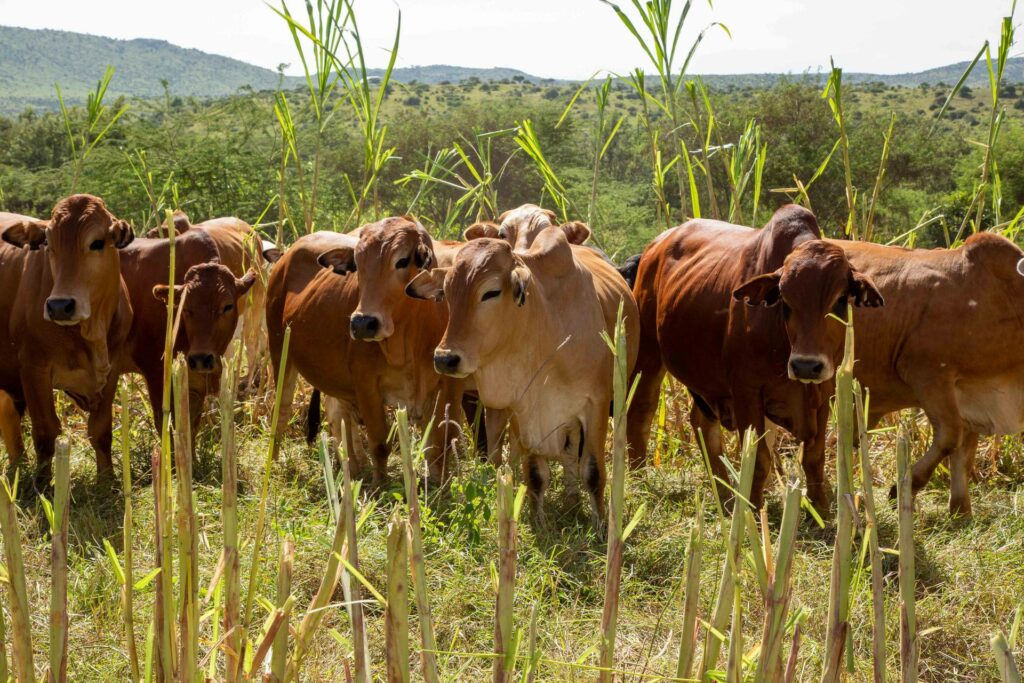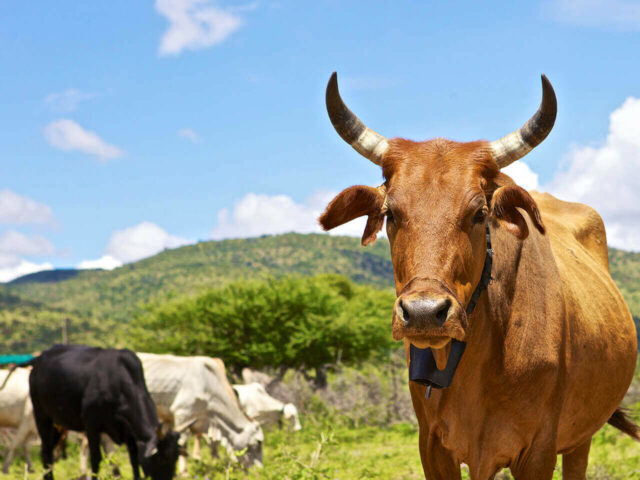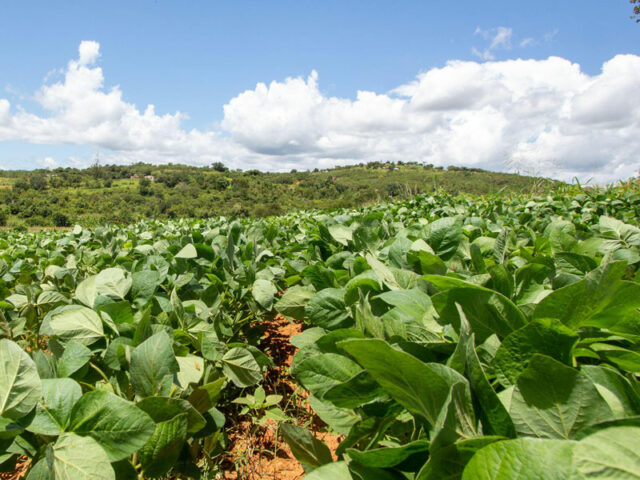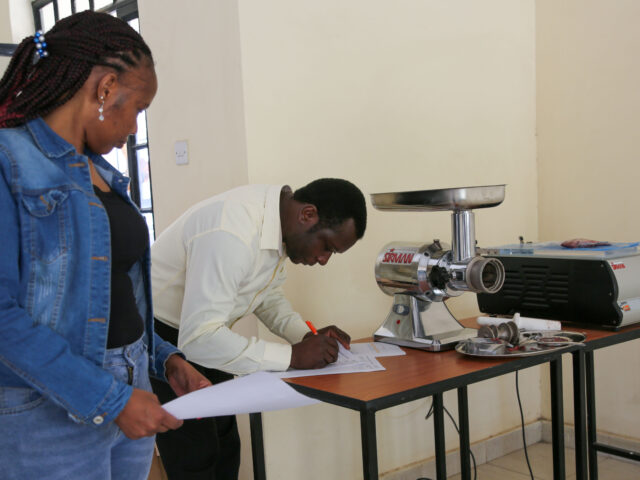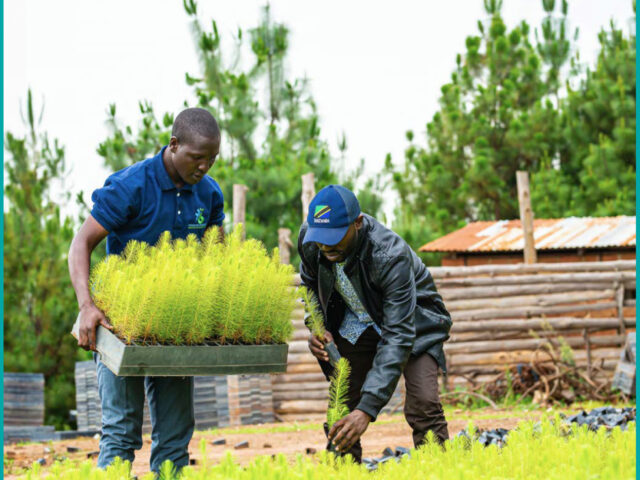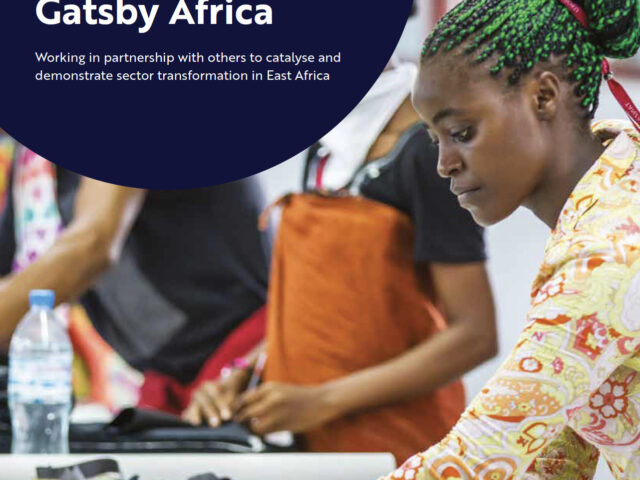Livestock
Supporting Kenya to develop a modern and competitive meat sector, whilst also innovating models that maximise the extent livestock producers participate in and benefit from higher returns from the sector
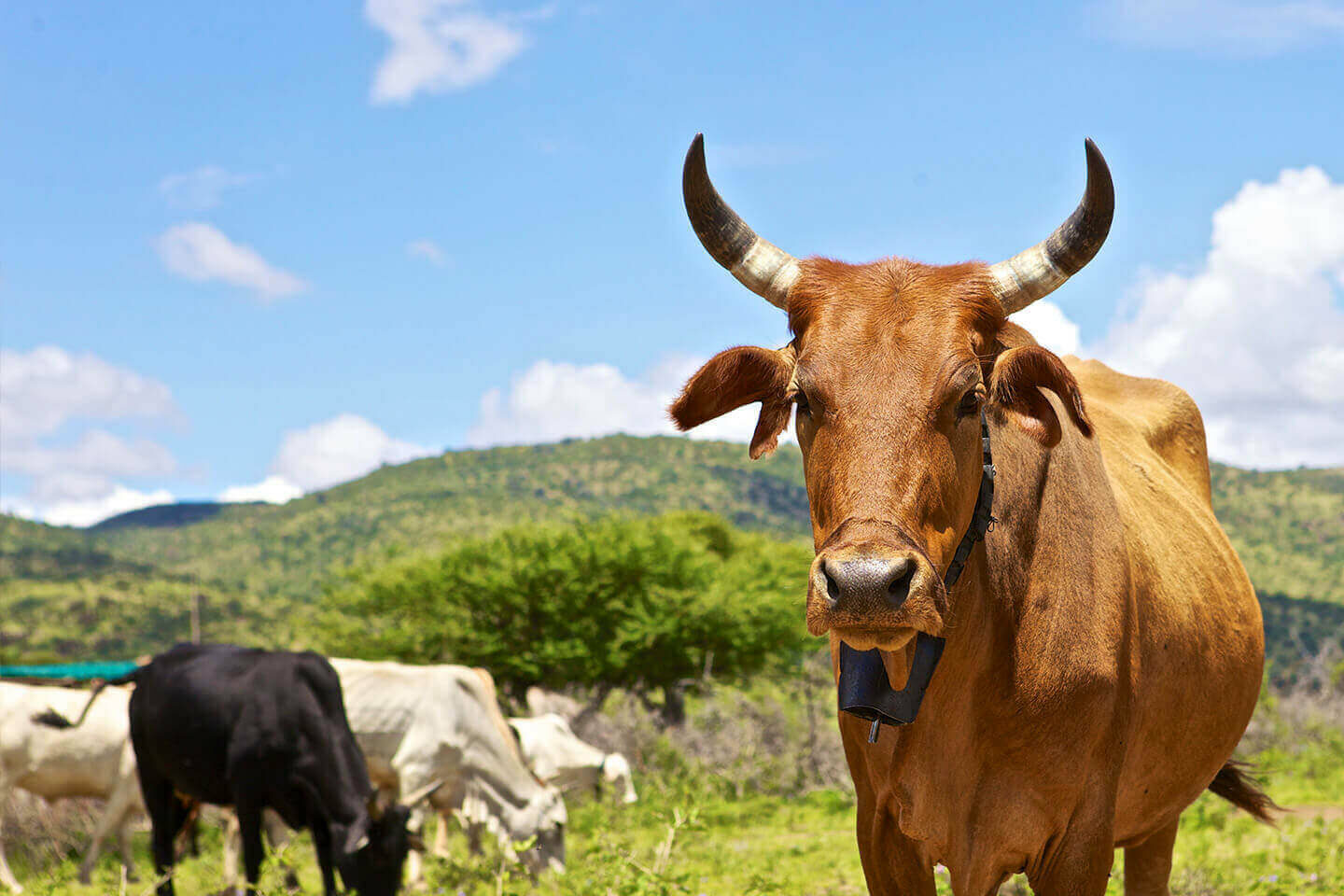
East Africa is home to an estimated 180 million cattle, but the region as a whole remains a net importer of beef, and its beef trade deficit is growing.
Our current programme focuses on Kenya, where over ten million pastoralists and smallholders in the arid and semi-arid lands depend on livestock as their main source of income. The sector therefore has an important role to play in delivering an inclusive and prosperous future for millions of vulnerable people in Kenya.

Number of Kenyan pastoralists who derive their livelihoods from livestock
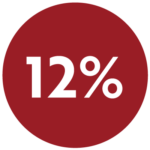
Livestock sector’s percentage contribution to Kenya’s Gross Domestic Product (GDP)

Kenya’s demand for livestock products is expected to double by 2050
The Opportunity
Most of Kenya’s beef is produced in pastoralist primary production systems but productivity is decreasing, due to increased climate variability, reduced access to land through conflict and land use change, and degradation of rangelands. This has resulted in decreased and more irregular supply of beef into the market, at a time when demand is growing.
Gatsby sees secondary production as a potential key leverage point for change. Effective secondary production systems can adapt to seasonality and shocks by providing offtake for pastoralist producers, then fattening and preparing animals for slaughter with supplementary feed. They can effectively serve as a ‘risk valve’ for the sector, boosting and evening out the quantity and consistency of meat available in the market. Better integrating pastoralists into this system has the potential to support their adaptation to climate and other risks.
How we define secondary production:
Secondary producers offtake cattle from primary producers (which may be pastoralists or cow-calf farmers) and add value through feeding and herd management strategies. Secondary production can include a combination of production models ranging from extensive, to semi-intensive, and intensive systems.
Areas of work
Working with different types of livestock businesses to test secondary production models and innovations
Working to ensure that the availability and cost of feed are not a constraint to the scaling of secondary production systems
Coordinating with other development partners to collectively address key constraints and opportunities in the sector
Supporting the Government of Kenya as a strategic thought partner on key sector issues
With a small investment in hygiene and food safety, we are now the leading exporters of goat meat to the Middle East from Kenya, with 216 employees and a strong growth trajectory.
